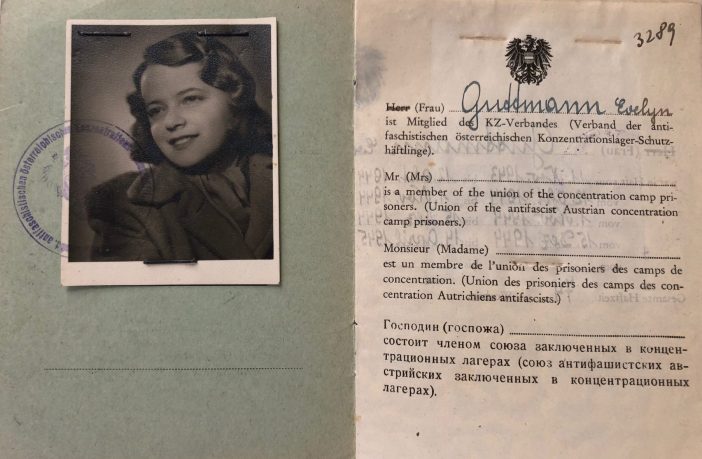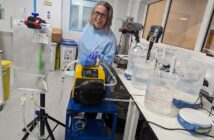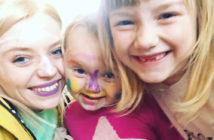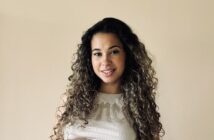Evelyn Lipmann survived the Holocaust. She survived internment in four concentration camps; many of her family did not. As a pioneer student of The Open University, she’s asked us to share her story so that future generations can learn from the atrocities that took place. Since publishing her story in August 2018, we have now been given access to her testimonial footage.
For many years Evelyn had not felt able to talk about her experiences. She said that the roots of her decision to talk about the past lay in her years with the OU.
“The OU made it possible for me to express myself so much more clearly. I never had any counselling after the war and was not able to talk before, whereas I know lots of others were. It was very hard to dig it up; I had to remember everything I had been trying to forget. It is terribly important to me that I speak as an actual person who has been through it.”
But when approached by the Holocaust Educational Trust, she felt the urge to try and tell her story to a wider audience as a witness to such terrible events. This was done in an emotional video interview conducted with Natasha Kaplinsky, and Evelyn has asked The Open University to study the footage.
Evelyn tells her story
The original article published on OU News in August 2018 tells much of Evelyn’s life before her internment, and her journey after her liberation. In her testimonial video, she describes her time within the camps.
Evelyn’s arrival at Auschwitz
On arrival at Auschwitz, prisoners had their identity number tattooed onto their arm. Evelyn explains how she broached the subject with her children.
Difficult goodbyes
Incredibly both Evelyn and her mother survived 18 months in camps, in which countless thousands died, although they lost touch with her father. Only after the war did they discover that Fritz did not survive, nor did they ever find out how or when he died. Evelyn recounts the last time she spoke to her father.
Liberation
In April 1945, the Allied forces liberated the Salzwedel camp where Evelyn and her mother were interned. She talks of the chaos and excitement of liberation.
Life after the camps
Eventually, Evelyn and her mother moved to England, where she met and married her husband Eric In time, once her body had recovered from the effects of the camps, two children followed. Through the years of motherhood and school, her own missing education nagged away at Evelyn.
The OU was conceived as open to all, regardless of previous educational achievements. Evelyn, who had no education certificates, enrolled on a foundation course in 1972 and went on to study for her degree over six years. Here, she talks of what prompted her to start that educational journey.
Forgiveness
It is hard to comprehend how such atrocities can be committed, and how a survivor would feel towards their oppressors. Evelyn explains some of her thoughts on forgiveness today.
Evelyn felt quite strongly that her story should be told, and we’re privileged to have been given the opportunity to tell it for her.
More about Evelyn’s family
As part of her interview, Evelyn talked through some old photographs and records.
With thanks to:
Evelyn Lipmann and her family, particularly Anthony Lipmann for his time.
The Holocaust Education Trust and Holocaust Memorial Foundation for allowing us to use Evelyn’s testimonial.



